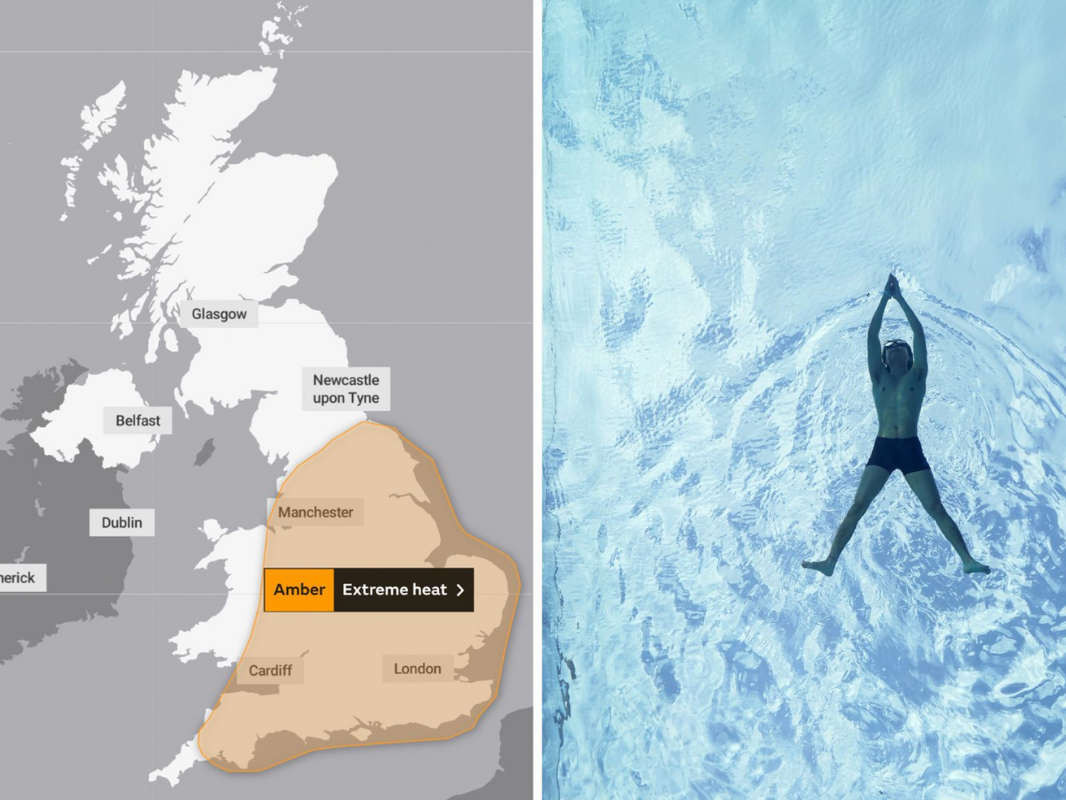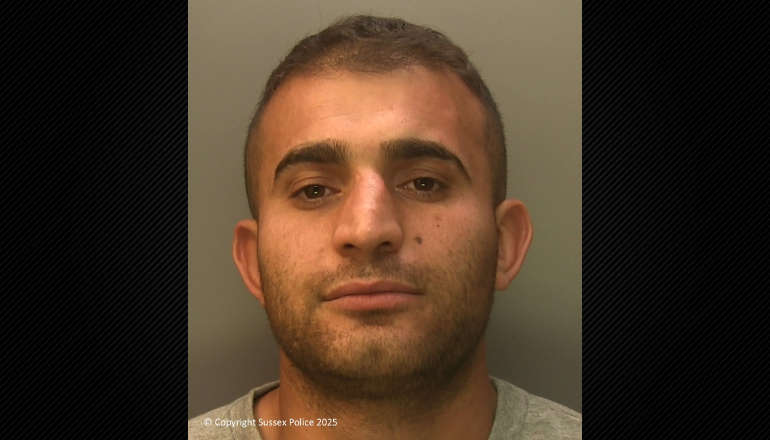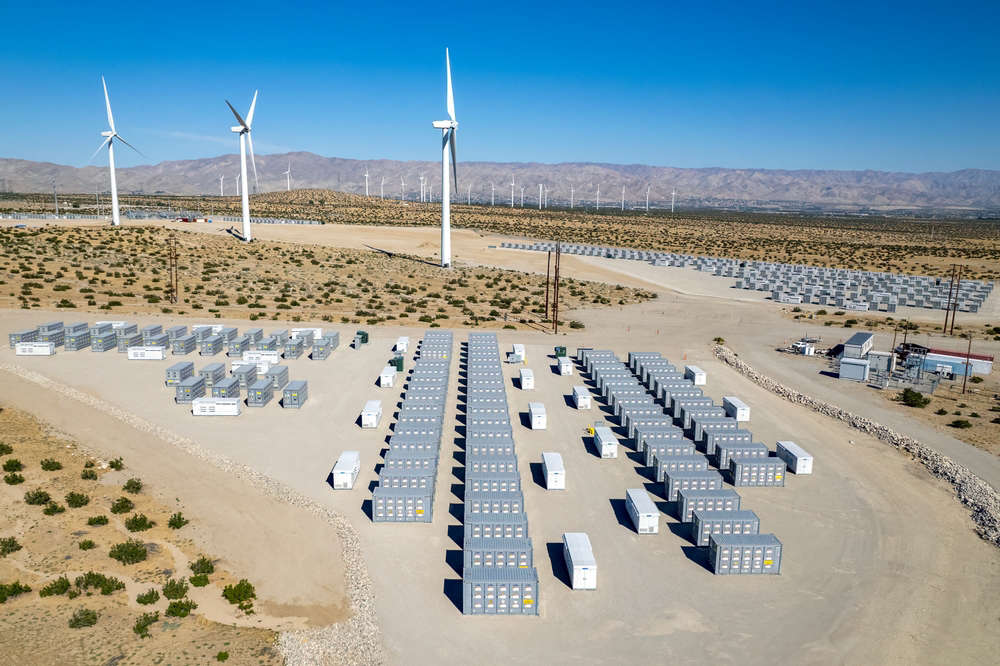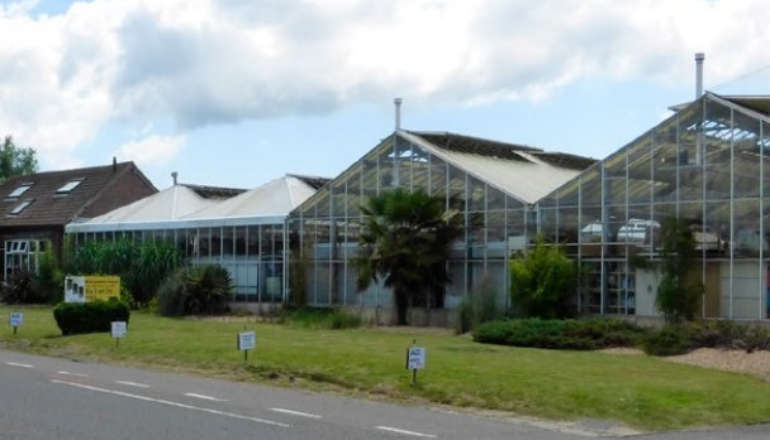
There is a 30% chance that Sunday will be the hottest day the UK has ever seen - with yesterday's heat already having an impact.
Senior government officials met to discuss plans for the first-ever heatwave emergency in a bid to deal with the rising temperatures, according to the Telegraph.
A national emergency is declared when the hot weather is so extreme that "illness and death may occur among the fit and healthy" as well as vulnerable people, the UK Health Security Agency states.
If implemented, it could cause widespread disruption to schools, travel, health services and even nuclear power plants.
There could also be a possibility that local hosepipe restrictions are introduced, especially in the south, if high temperatures persist.
It comes after the Met Office issued an amber weather warning for extreme heat across parts of the UK on Sunday, as temperatures are expected to soar into the 30s.
The rare warning means there could be a danger to life or potential serious illness as a result of the weather.
It is being enforced across the East Midlands, East of England, London, South East, North East, North West, South West, Wales, West Midlands and Yorkshire and Humber.
"At the moment, we are looking at a 30% chance of seeing the highest temperature recorded in the UK, if that does happen we will have to record higher than 38.7C - which was back in 2019 in Cambridge," said Met Office forecaster Simon Partridge.
"Technically, if we don't drop below 20C overnight that is classed as a tropical night, so parts of Yorkshire - which sounds ridiculous - are going to have a tropical night tonight," he added.
Rail delays, advice for drivers and deployment of gritters
However, the sunshine could cause some issues such as road closures and delays or cancellations to rail and air travel.
Network Rail has warned speed restrictions are likely to be in place this week on the worst-affected parts of the network.
For those driving, the RAC has recommended carrying water in the car and starting journeys earlier in the day.
Fire services have also urged people to have picnics instead of barbecues during the warm weather after a spate of grass fires.
In Hampshire, the council has said it is preparing to deploy gritters to protect cars against melting roads.
In Lincolnshire, the high temperatures have caused a Key RAF base to halt flights after the tarmac melted in the sunshine.
Some parts of the UK have already seen record temperatures, with Wales recording its hottest day of the year so far after the mercury reached 28.7C in Cardiff's Bute Park on Monday.
On the same day, temperatures hit the low 30s in England, with Northolt, west London, recording 32C.
Railway lines on Battersea Bridge, in central London, caught fire as a spark ignited wooden beams after speed restrictions were introduced to stop rail lines from buckling in the heat.
Elsewhere, Aboyne in Aberdeenshire, Scotland, basked in 27.5C and it was 24.2C in Armagh, Northern Ireland.
What is the weather looking like for the rest of the week?
The Met Office says the mercury is predicted to rise to 30C in London, Chelmsford, in Essex, and Sudbury, in Suffolk, on Tuesday while the rest of England is expected to see temperatures soar to the late 20s.
The whole of England is largely expected to experience sunny days with some cloud over the next week to match the temperatures of mid to high 20s.
It will cool off a little on Friday, with the north-west and north-east of England predicted to have some rain with temperatures reaching highs of 19C.
Temperatures are expected to spike to 32C in Reading and London on Sunday and in excess of 35C in the southeast.
Scotland and Northern Ireland meanwhile are predicted to have a cloudier week, with rain forecast for Tuesday and Friday.
Weather forecasting models suggest it is possible - though not likely - temperatures could reach 40C in the UK next weekend.
It would mark the first time the temperature has ever been recorded in the country.

(c) Sky News 2022: UK heatwave: 'Tropical night' in North as gritters tackle melting roads - with 30%
SUSSEX:
Locally, South East water are asking us to anticipate a hosepipe ban and offering tips on how to save water:
These include:
- Let nature water your grass - Allow lawns to go brown – it will soon go green again when it rains
- Save paddling pool water - Top-up and reuse paddling pool water for your plants and grass
- Put down the garden hose - Use watering cans for lawns, plants and flower beds, instead of garden hoses
- Running taps are wasteful - Don’t let taps run when brushing your teeth – turn them off
- Take shorter showers - Knocking a minute or two off to take shorter four minute showers
- Fill your dishwasher before you use it - Don’t use your dishwasher until it is full and save water and energy
- Wash your car less frequently - It’s a small change that will make a big difference for everyone.
Similarly National Highways has offered advice to motorists and their passengers to help them deal with high temperatures and dazzling sunshine as they prepare to make their journeys.
Drivers travelling during periods of hot weather this week and coming weekend are being advised to:
- Take a bottle of water before setting out to ensure you stay hydrated
- Plan and leave plenty of time for journeys
- Check the weather forecast for your destination
- Check your vehicle before you leave
- Check travel conditions before setting out and, where it is safe to do so, during journeys.
Sussex NHS has asked people to look out for vulnerable neighbours and has offered some common-sense advice to help people deal with the heat:
- Use sun screen at least with factor 30spf if going outside
- Check medicines are stored according to the instructions on the packaging
- Stay cool indoors - close curtains on rooms that face the sun
- Drink plenty of fluids and avoid excess alcohol
- Try to keep out of the sun between 11am to 3pm
- Walk in the shade and wear a wide brimmed hat
- Make sure you take water with you if you are travelling


 Appeal Launched Following Chichester Assault
Appeal Launched Following Chichester Assault
 Extra Money Approved For More Than 200 New Council Homes On Brighton Estate
Extra Money Approved For More Than 200 New Council Homes On Brighton Estate
 London Man Jailed For Raping Woman On Brighton Seafront
London Man Jailed For Raping Woman On Brighton Seafront
 Man Found Guilty Of Murder After Fatal Hailsham Collision
Man Found Guilty Of Murder After Fatal Hailsham Collision
 Hastings Green Party Releases University of Brighton Academy Trust Statement
Hastings Green Party Releases University of Brighton Academy Trust Statement
 East Sussex Councillors Support Plastic Free Campaign
East Sussex Councillors Support Plastic Free Campaign
 Twineham Battery Energy Storage Plans Approved
Twineham Battery Energy Storage Plans Approved
 Chichester Garden Centre Demolition Plans Submitted
Chichester Garden Centre Demolition Plans Submitted
 Brighton and Hove Health Chiefs Outline Two-Week Plan For Appointments
Brighton and Hove Health Chiefs Outline Two-Week Plan For Appointments
 Brighton Taxpayers Will Take On i360 Loan Burden
Brighton Taxpayers Will Take On i360 Loan Burden